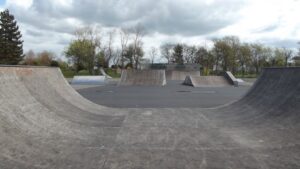
Protest in Downtown Chicago on 7/20/14
On July 20, 2014, downtown Chicago became the epicenter of a protest that captured the attention of the nation. Thousands of demonstrators flooded the streets, united by a shared cause and a collective determination to bring about change. The atmosphere was electric, as chants echoed through the city and signs held high conveyed powerful messages.
The protest in downtown Chicago on July 20, 2014, was an embodiment of people’s frustrations and demands for justice. As I stood amidst the sea of protesters, it was impossible not to be moved by their passion and conviction. This demonstration served as a platform for individuals from all walks of life to come together and express their grievances against societal injustices.
The sheer magnitude of this gathering showcased the strength and resilience of those who believed in fighting for what they believed in. It was an event that left an indelible mark on both the cityscape and its residents’ hearts. In this article, I will delve into the details of this historic protest – exploring its origins, impact, and lasting legacy on Chicago’s social landscape.
Overview of the Protest
The Start of the Protest
On July 20, 2014, downtown Chicago witnessed a powerful protest that drew attention from both locals and the national media. The demonstration began in the morning at Grant Park, where thousands of passionate individuals gathered to voice their concerns and stand up for their rights. The atmosphere was charged with energy as people chanted slogans and held up signs advocating for change.
Key Issues Addressed
The protest in downtown Chicago on July 20, 2014, focused on several key issues that were important to the participants. One prominent concern was police brutality and misconduct, which had been making headlines across the country. Demonstrators demanded accountability for law enforcement officers who abused their power and called for reforms within the justice system.
Another significant issue addressed during the protest was income inequality. Many participants expressed frustration with economic disparities and called for fair wages, affordable housing, and better job opportunities. They believed that everyone should have equal access to basic necessities and opportunities for upward mobility.
Furthermore, this protest also highlighted environmental concerns such as climate change and renewable energy. Participants voiced their worries about the future of our planet and stressed the need for immediate action to mitigate environmental degradation.
Organizers and Participants
The event was organized by a coalition of grassroots organizations, activist groups, social justice advocates, students’ unions, labor unions, and concerned citizens who shared common goals. These organizers worked tirelessly to ensure that all voices were heard during the protest.
People from various backgrounds participated in this demonstration – students fighting for their right to education, activists working towards racial equality, workers demanding fair treatment – all united by a desire to bring about positive change in society.

Location and Time of the Protest
The protest in downtown Chicago on July 20, 2014, was a significant event that brought together a diverse group of individuals advocating for various causes. The demonstration took place in Grant Park, one of the city’s most iconic locations known for its historical importance and large open spaces.
Grant Park provided an ideal setting for this protest due to its central location and accessibility. Situated in the heart of downtown Chicago, it offered ample space for participants to gather peacefully and voice their concerns. The park’s proximity to public transportation hubs made it easier for people from all over the city to join in solidarity.
The protest began at noon, attracting a substantial crowd that filled the park with passionate energy. Organizers chose this time deliberately to maximize visibility and ensure maximum participation. By scheduling the event during daylight hours, they aimed to capture media attention and engage as many people as possible.
As the day progressed, chants echoed through the streets surrounding Grant Park while signs carried powerful messages advocating for change. The atmosphere was charged with emotion as participants expressed their grievances against social injustices, political issues, and other causes close to their hearts.
It is worth noting that protests are not only about expressing discontent but also serve as platforms for dialogue and community building. People attending these events often find solace in connecting with like-minded individuals who share their concerns and aspirations.
In conclusion, the protest in downtown Chicago on July 20th, 2014, was an impactful gathering that aimed to address critical issues such as police brutality, income inequality, and environmental concerns. Organized by a diverse coalition, this demonstration brought together passionate individuals from all walks of life, united in their call for justice and equality.













